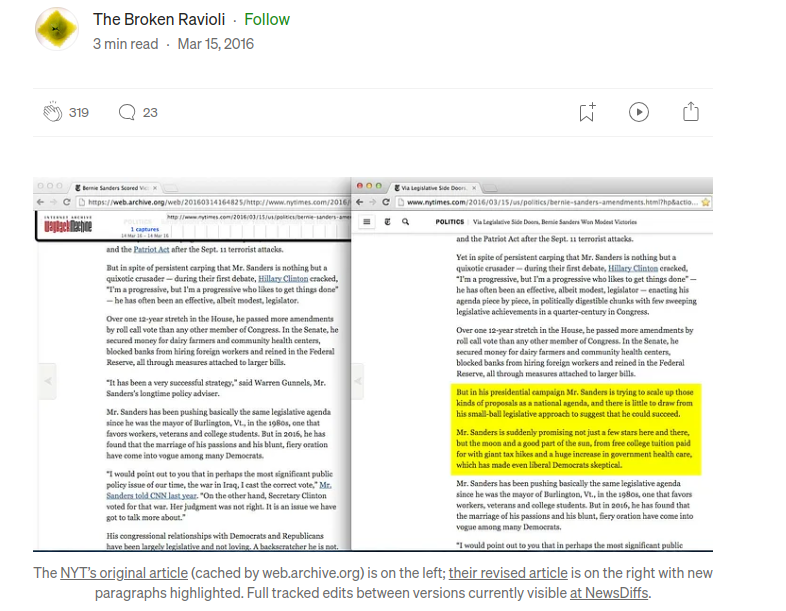Hot take: We need a middle ground between free unfettered access to journalism and total pay wall restrictions. Physical libraries do this well. Digital content is a lot more complicated. Maybe Internet Archive should only be able to publish content that’s over X years old? Thoughts?
There has been a long fight to get academic papers whose funding sources came from the government to be made open access, with the justification that the people who literally paid for the research should be able to read it. We’re not talking national security here - we’re talking about fruit flies and black holes and such.
The last time I checked, they agreed to make all government funded research open access after (I think) one year. I still think that’s ludicrous, but o see that as being analogous to what is being proposed here.
If we were to check the average number of times the average news article is accessed after publication, I bet it would fall off a cliff after the first couple of days at most. Some might have more staying power, but I bet 90-95% of them basically never get touched again. I’m sure you could take the number of people who buy a subscription on the basis of needing to read a three month old article and figure out a different way to make back the $100/month or whatever they’d lose on just opening access.
And that’s why I’m not pretending I have the solution. Details have to be sorted out.
Removed by mod
DRM at best makes it take more effect to access - a hurdle to entry. In this day and age it has never been easier for regular people to copy, and trying to fight that is an uphill battle in a war they aught to stop anyway.
DRM is a black box of software, doing god-knows-what. That gives them unjust power over users’ computing. DRM manages “rights” by denying people’s software freedoms. DRM is digital restrictions management.
The “middle ground” is for publishers to back the fuck off and let libraries do their goddamn jobs.
Why is that position in the middle? Because the extreme position is that the publishers have broken the social contract – which was for Congress to grant them the privilege of a temporary monopoly in exchange for enriching the Public Domain in the long run – and thus no longer deserve to have copyrights at all.
Digital is a completely different paradigm. If an online library has unlimited copies of a book, why would anyone buy it? New books won’t be written is no one pays for them.
Sure, where x=0.
The point here is accountability, not free as in free beer.
I don’t follow
You made a statement with an undefined term “x.” I defined “x” for you. Substitute 0 for x in your statement, and think about it for a bit.
I understand the math, thanks. I’m talking about what you meant by accountability.
The publication needs to be held accountable for its unethical edits, which seems to only be possible thanks to a resource like this archive.
Ok, you’re talking about something entirely different. There could be a way to show edits without giving away the entire content of the article for free. That’s valid.




